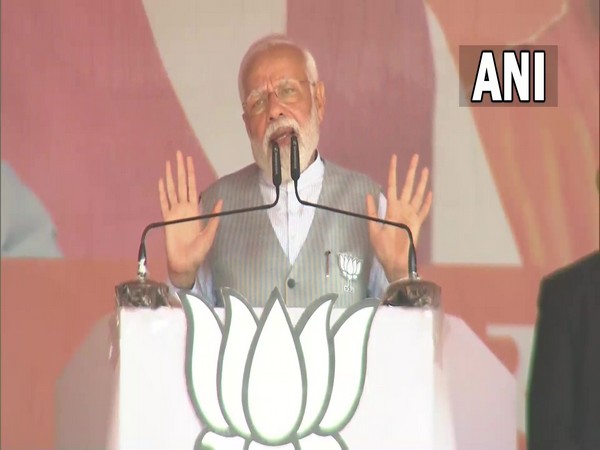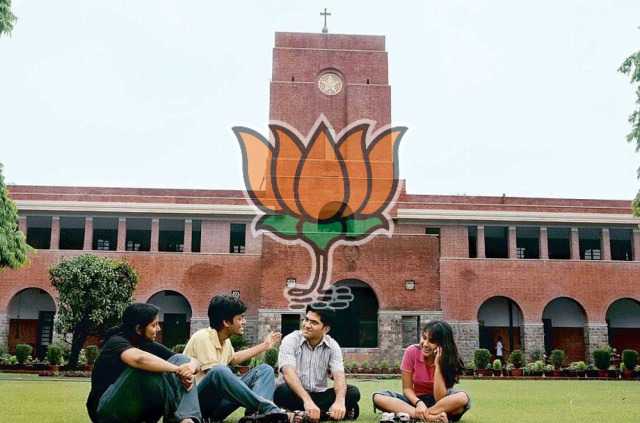Stressing on the need to rewrite India’s history, Prime Minister Narendra Modi said on Friday that despite country’s rich history of victory and sacrifice, colonial-era history is taught in educational institutes.
While speaking at the 400th birth anniversary celebration of Lachit Barphukan, the Prime Minister said that India’s history was distorted deliberately.
“In every corner of the country, Bravehearts of Maa Bharati faced the oppressors and sacrificed their lives. This history was deliberately hidden. Is the valour of Lachit Barphukan not important? Are the sacrifices of thousands of people in Assam against the Mughals not important?” said PM Modi.
He said that there was a need after independence to fight the agenda of those ruling over us. But that was not done.
Unfortunately, even after independence, we were taught the same history that was created under a conspiracy during the colonial era. After independence, it was needed to change the agenda of those who colonised us but it wasn’t done,” said the Prime Minister.
PM Modi said that India’s history is not just about colonialism but it is a history of warriors.
“For centuries, it was attempted to tell us we are people who always get looted, beaten, and lost. India’s history is not just about colonialism, it’s a history of warriors. India’s history is about displaying valour against oppressors, about victory, sacrifice, and great tradition,” he said.
He further said that today India has broken the shackles of colonialism and is moving forward, celebrating our heritage and remembering our heroes with pride.
“Today, India is not only celebrating its varied heritage but also remembering its braveheart unsung heroes,” he added.
“Assam’s history is a matter of great pride in India’s journey. We believe in uniting the various thoughts, beliefs, and cultures of India. India has always valued its rich and cultural heritage; we have always protected our spiritual and cultural principles. That’s what makes us a marvellous civilization.”
The Prime Minister said India has the ability to give a befitting reply to those who practice atrocities.
“India’s history is the history of warriors, the history of victory, the history of sacrifice, selflessness, and bravery. Each and every youth of India is a warrior when it comes to saving their cultural heritage from any external forces,” he said.
While addressing today, Assam Chief Minister Himanta Biswa Sarma had asked historians to highlight the achievements of leaders like Lachit Barphukan, Chhatrapati Shivaji, Guru Gobind Singh, and Durgadas Rathore among others to show history in a new light.
“Humble request to our historians that India isn’t just the story of Aurangzeb, Babar, Jahangir, or Humayun. India is of Lachit Barphukan, Chhatrapati Shivaji, Guru Gobind Singh, Durgadas Rathore. We should make an effort to see it in a new light. It will fulfill our dream to be a Vishwa Guru,” Sarma said.
This comes a day after Union Home Minister Amit Shah made a similar statement, saying no one can stop rewriting history adding that Indian history is twisted and inaccurately written, and appealed to historians and research scholars to rewrite it.
“I have always heard that our history is twisted and inaccurately written. It might be true, but who can now stop us from writing about our glorious history? We have to take the courage, rewrite and present our history before the world,” the Union Home Minister said.
Shah appealed to the historians and research scholars attending the function to get over this narrative that Indian history is twisted and inaccurately written.
He asked them to write about 30 empires that ruled for more than 150 years in any part of the country and 300 such great personalities who fought and sacrificed themselves during the country’s freedom struggle.
Born on 24th November 1622 in Charaideo, Lachit Barphukan was known for his extraordinary military intelligence in defeating the Mughals, thereby halting the expanding ambitions of Aurangzeb in the Battle of Saraighat.
On November 24, each year, Lachit Diwas is celebrated state-wide in Assam to commemorate the heroism of Lachit Borphukan and the victory of the Assamese army at the Battle of Saraighat.
A flagship event was organized by the Centre at Vigyan Bhawan in New Delhi to showcase the life of one of the greatest warriors of eastern India and celebrate his achievements outside his home state to pay nationwide tribute on the leader’s 400 birth anniversary. (ANI)
Read More: https://lokmarg.com/

